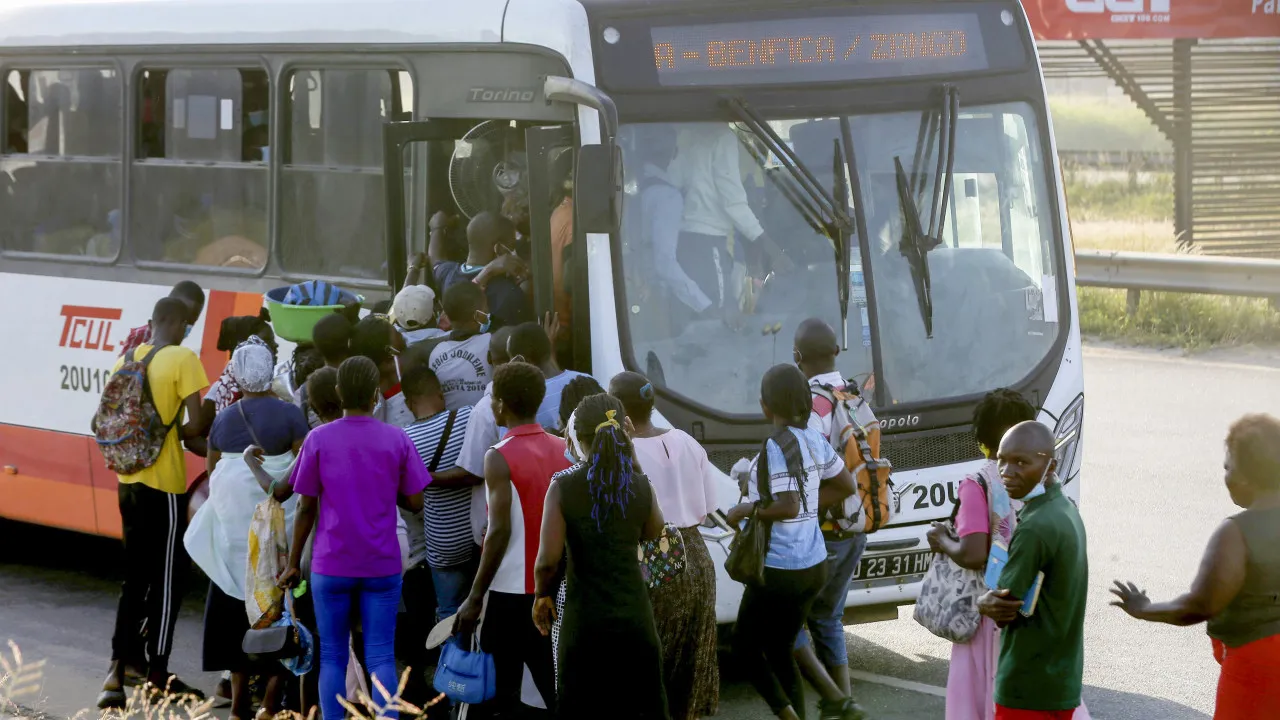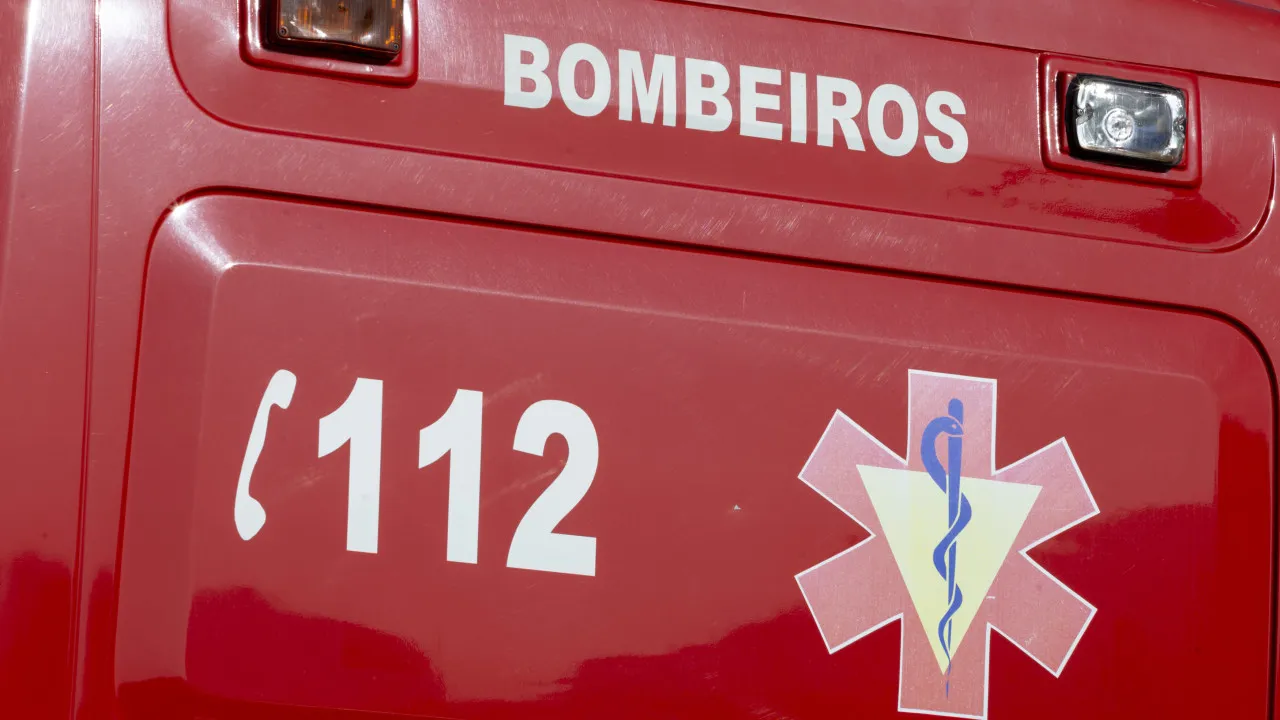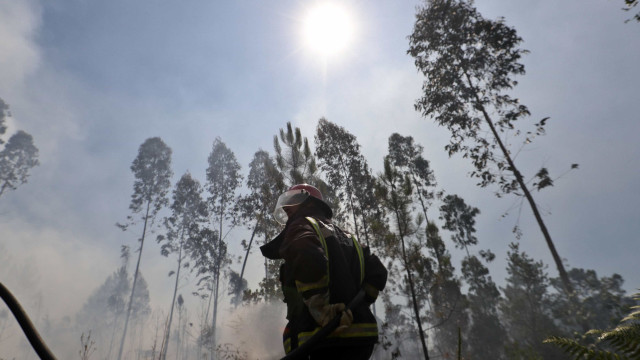
“Politicians are all the same” is a phrase often heard when discussing politics, whether in a café or at home. This statement now headlines a book by journalist and deputy director of Polígrafo, Gustavo Sampaio. The book serves as a “diagnosis of what is happening” in the Portuguese scene, which has been “infected” by the “virus of populism” since Chega entered the Assembly of the Republic in 2019.
Chega capitalized on the “political strategy” of traditional far-right elements, successfully “infiltrating ideas traditionally found on the far-right and at the system’s margins into the center of the system.” This became evident as security and criminality emerged as topics of “great urgency in Portuguese society.”
Looking internationally, Chega’s leader, André Ventura, is seen as having “the seed of an authoritarian leader,” which, as Gustavo Sampaio explained, poses “a huge risk to the resilience of institutions and the democratic system” should he come to power.
Currently, Chega is “in a stage of attracting the electorate and growing its vote share,” thus “not revealing or diluting” traditional far-right elements to “achieve much more expressive electoral results and legitimately contest for power.”
For months, during campaigns and within political programs, we addressed the issue of security and criminality as if it were of great urgency and central to Portuguese society, something I don’t recall having ever existed in Portuguese politics. More gravely, we intensely correlated this issue with immigration, which there are no data to justify, aligning with Chega’s xenophobic, racist, and anti-immigration rhetoric.
There are current signs of the “virus” of populism throughout various parties, albeit more pronounced in some than others. Did the political normalization of Chega break the ‘quarantine’?
Yes, I believe Chega is the most consistent project in this realm, notably because it replicates strategies of other populist parties in different countries, which have achieved electoral success. It is undeniably the project that goes the furthest with this political strategy, thereby posing the greatest risks to the Portuguese democratic system.
Considering what has happened and is happening in other countries, it heightens fears that it might also exercise power and take actions that challenge institutions, the separation of powers, judicial independence, and even the legitimacy of the electoral process when results are unfavorable to the party.
So, at this point, can we consider Chega an openly far-right party, albeit not in the traditional sense?
To directly answer, yes. But that is not what is most relevant. The far right has always existed. The key issue is that far-right parties previously had negligible electoral presence, not exceeding 1%. For instance, in France, when Marine Le Pen succeeded her father, Jean-Marie Le Pen, there was a transformation of the National Front’s political project, from a traditionally far-right stance that frightened voters with antisemitic, World War II revisionist, nearly neo-Nazi, openly racist and xenophobic messages, to crafting a package where these elements still exist but in a diluted form, often through metaphors or sanitized language. This allowed it to maintain its base of support while attracting voters from the right and even the center by ceasing certain radical statements, substantially increasing the electoral success of that project and its viability to contest for power.
Similarly, this is what occurred. Initially, with Chega, the traditional far right, which was then the PNR, now called Ergue-te, reacted with criticism, claiming Chega was usurping their program. The leader at the time made such declarations concerning André Ventura. It was partly true, and remains so. However, what is most pertinent is that while this component exists in the program and political strategy, it is not the political packaging of that project that is displayed to the public, which allows it to reach far more voters who might never have supported the traditional far right.
Another aspect of the issue is not merely about such parties coming to power. In most cases, if they do assume power, they do not last long. Another rapid transformation, akin to Chega’s swift rise, was the infiltration of traditionally far-right ideas from the system’s margins into its center, even integrating programs, discourses, and political actions from parties within the central political system of Portugal.
This was observed recently and markedly in matters related to immigration and security and criminality. While acknowledging that a part of these phenomena might be perceived as problematic, there was clearly an exaggeration and creation of a false idea, as the (Relatório Anual de Segurança Interna) RASI data indicated, suggesting a massive crime wave. In many areas, incidents have decreased. Overall, crime levels remain below pre-pandemic 2019 levels. A decade back, the numbers were much worse, even regarding violent crime, homicides, etc.
There are numerous criteria and examples that suggest the presence of an authoritarian leadership seed. Exercising power poses a significant risk to the resilience of institutions and the democratic system, especially considering how entrenched and structured the system of checks and balances is in American democracy.
As mentioned, proto-fascist, demagogic, and populist parties aim “to impose a single-party dictatorship, distort truth, and suppress dissent, […] disguising extremism and thus fabricating a kind of ideological homeopathy for mass consumption.” How advanced is this phenomenon with Chega, particularly given the constant sharing of false or manipulated information on social media, often employing graphics from national media, usually tapping into the “emotional aspect”?
It’s challenging to address this at this point, because Chega is in the opposition stage. In opposition, as I also address in the book relating to other projects in more advanced stages and which we can compare because we’ve seen examples of their governance, this type of populist project, of course, invokes respect for democratic rules. That’s what distinguishes it from the traditional far-right, which exhibited little affection for democracy and overt historical revisionism, openly expressing its thoughts. In opposition, these projects do not reveal, hide, or dilute their message in a phase of voter attraction and electoral growth. Drawing comparisons with other populist projects, parties, and leaders from various countries— many closely linked to André Ventura and Chega— gives insight into what such a party might do when in power, either alone or in coalition. There are also indications from Chega’s evolution over six years, marked by rapid transformations.
I adapted an authoritarian leadership forecast from two American political scientists regarding Donald Trump, examining criteria before he first assumed power, in the 2016 campaign. They found substantial evidence of his potential authoritarian leadership. I adapted this to Portugal’s reality, and André Ventura scored even higher than Trump in 2016. This is mainly based on how he already exercises power within Chega, considering testimonies from those internally responding to it. For instance, he imposed a gag rule within the party, preventing dissent or criticism of himself as a leader. Despite having an overwhelmingly dominant position in the party, where it’s conflated with him, there is little internal opposition. There’s also widespread belief the party might struggle to maintain its electoral size if he ever left leadership.
Observing foreign examples, especially in the United States, it’s evident how [falsehood] destroys social fabric and polarizes society. Rather than political disagreements, there are almost political adversaries who cannot converse, distorting democratic play. That’s why free, independent, and active journalism is crucial.
[I also highlighted] his tendency to curb anyone gaining prominence, cutting off opportunities for someone that might threaten his leadership, and the difficulty dealing with significant figures within the party, as noted in interviews with Nuno Afonso, his former right-hand man. Afonso mentioned Ventura wouldn’t even permit contradictions internally. He also raised the issue of personality cult, illustrated by ordering his portraits in all Chega parliamentary offices, down to local party branches.
These instances and criteria suggest the presence of an authoritarian leadership seed. Exercising power poses a significant risk to the resilience of institutions and the democratic system, especially considering how entrenched and structured the system of checks and balances is in American democracy. Portugal’s democracy has only existed for 50 years, and it’s uncertain how consolidated it is to withstand such authoritarian leadership, challenging essential elements of the democratic system.
You have questioned often, “How can one debate within this irrational framework?” Redirecting the query: as journalists, we know falsehoods travel further than corrections. How do we combat this effectively?
I don’t know the best way to fight it. In journalism, our priority is always seeking truth or approaching it as closely as possible. That’s a battle we must wage daily against new, emerging projects. Not that falsehoods or propaganda were absent in political activity and leadership before—they were and always will be, even blatant lies. However, such systematic use as a political strategy by this party is unprecedented. The novelty is further enhanced by technological resources facilitating the continuous dissemination of falsehoods, mainly addressing emotional and resentful segments of the population. Once again, exemplified in the United States, it is evident how it disrupts social fabric and societal polarization. Instead of political disagreements, almost political adversaries emerge, unable to engage in conversation, distorting democratic play. Hence, the immense necessity for a free, independent, active press.
While there’s a demand for such political discourse, even if André Ventura exited the scene, the party might withstand with new figures, or another party applying the same approach could emerge to attract such an electorate.
Democracy heavily relies on truth, reflecting its principle that people vote with the most accurate information. If they vote under the false impression of one candidate being criminal, based on untrue social media content, there’s a distortion of democratic procedures leading to electoral manipulation. Hence, combating the introduction of falsehoods in the public debate, confrontations, and bullying between political figures is pivotal, as witnessed in the Assembly of the Republic. Recent legislatures have seen a much more tense political climate; a near-constant confrontation laden with insults, prominently reflected in this party’s actions.
According to Nuno Afonso, the party resembles “a sect,” with a marked “cult of personality.” Given Chega’s lack of structure and internal ideological rifts, does it have prospects of survival if the leader departs?
Studies observing similar parties abroad find that personality-centered parties face steep survival challenges. Since André Ventura often curtails anyone gaining prominence, there aren’t many visible figures for succession within Chega. According to Nuno Afonso in an interview, from Ventura’s close allies at the party’s founding, only one remains since he gradually distances others. At a leadership level too, we’re on the third wave of directors already due to such distancing, often with emerging issues. Perhaps Rita Matias is gaining influence, particularly in specific topics and youth engagement, but not much more.
Often, as seen in other countries, center-right parties, noticing votership shifting to such populist groups, nearly replicate populist policies, abandoning core center-right positions. It’s a recurring phenomenon, subtly apparent here in Portugal.
Given these points, the party might face barriers. However, considering Chega’s electoral size—nearing 20% in elections or polls—despite Ventura’s potential exit, the party would unlikely vanish overnight. The voter base likely persists, perhaps with reduced electoral dimension. It’s noteworthy that in Europe, particularly, this party type has existed for decades, almost since the 1990s. This consideration offers perspective that, due to the political appetite for this discourse, should Ventura fade from the scene, Chega might endure through new faces, or another party might adopt the strategy to tap into that voting base. Though speculative, such outcomes remain unknown.
Sure, as it involves a voter base comprising not only those believing in such narratives but also discontented figures.
Indeed, there’s a coalition of discontentment and resentment effectively leveraged by Chega. André Ventura is notably efficient, exhibiting immense work stamina and political talent, reflected in electoral achievements; he skillfully harnesses dissatisfaction and sentiments. It’s a reliable indicator, revealing grievances and resentments less visible to the political-media bubble but well perceived by the party. The complication arises when genuine issues require addressing, yet the approach is wrong, undermining or downplaying their significance, indirectly fuelling Chega’s growth.
Regarding security and immigration matters, Chega’s anti-immigration narratives oppose specific immigrant groups based on appearance or skin color, often labeling them as South Asians. Contrarily, there’s no issue with imagined wealthy white immigrants. Despite rejecting such political stances often steeped in racism and xenophobia, it’s crucial to address that there’s been a notable migrant influx within Portugal recently, rapidly shifting from a marginal segment to a more substantial percentage resembling northern and central European norms, though still trailing their levels. Naturally, this imposes infrastructure pressures, particularly upon Portugal’s public services unprepared for such influxes. Coupled with tourists, it inevitably stirs local apprehensions and friction, exacerbated by rapid immigration flows. This breeds perceptions of insecurity.
If one within the party could stand as a candidate for something, gaining national stature could trigger relevance and attention, yet Ventura wants to be perpetually prominent, unwilling to distance from campaigns or coverage, always on the front as the candidate.
Such issues necessitate political and social relevance, warranting careful addressing by central system and party structures rather than adopting Chega or other populist parties’ frameworks. The core issue rests within the approach and context chega and others present them. Frequently, as witnessed elsewhere, center-right parties attempting to retain vanishing voters towards such populist groups occasionally mimic populist policies, abandoning traditional center-right positions. A subtle phenomenon seen under development in Portugal, which generally doesn’t bode well for the Right or ideological alignment within Right-affiliated parties.
There’s a recent example, a, you cited a speech by Luís Montenegro matching André Ventura’s rhetoric.
Exactly, that’s right. The press conference could potentially occur under different circumstances, making it less problematic. However, it was timed at the news hour, without even mentioning the theme, lending undue importance to a police operation unprecedented in Portuguese society. Then, mere months later, the factual RASI appeared, highlighting crime wave data absent in Portugal or justifying the urgency, panic, or central positioning of this matter in Portuguese life.
André Ventura already declared candidacy for the 2026 presidential elections, considered leading the municipal electoral list, now confronted with early legislative elections, he admitted stepping back from the presidential race. Does he pursue power at any cost?
Yes, he seeks power, but there’s an inherent need for prominence. If another party member pursued candidacy, they could gain national relevance and notability; however, Ventura feels compelled to remain at the forefront, never apart from campaigns, displayed ubiquitously in posters, omnipresent, consistently vying for candidacy. To be fair, post-Autárquicas and more notably the last European elections serves as a reference. Despite not crafting compelling discourse then—he actually uttered significantly troubling statements early in the campaign—comparatively, against prior elections and Chega’s candidates, he was competent: an ex-ambassador with extensive foreign policy and diplomacy expertise, contrasting against underprepared local governance contenders. Interestingly, Chega suffered major vote declines that election, which suggests Ventura realized the Chega electorate might not prefer such candidates. That campaign fared poorly, Ventura was already frequently present with the candidate, foreseeing disastrous outcomes.
If Chega hadn’t endured recent internal party incidents involving deputy Miguel Arruda, revealing grave issues, I’m nearly certain they would’ve risen tremendously [in early elections].
Thus, after reflecting on this experience, Ventura may conclude, at this stage, he alone can be the candidate. Running as both prime protagonist and, considering prior instances, when extending prominence yielded unfavorable outcomes for both himself and the party, he learned a lesson. Inherent dynamics and strategy underpinning protest parties dictate continual campaigning. There’s remarkably consistent action speed and propaganda, leveraging constant vigilance. His narrative often depicts crises he aims to rectify, mandates an ongoing electoral pursuit and candidacy aspirations for governmental overthrow. Likely, this perspective propelled him to lead candidate lists for multiple elections within mere years—a grueling pace, exhausting aspiring nominees, especially Presidential, highly personalized elections prompting candidate fatigue. Yet, his rhythm persists unwaveringly, which is notably admirable.
Various international examples prove populism’s ability to penetrate institutions and subvert democracy from within, employing conspiracy theories, intense emotions, and voter misinformation. With imminent elections, what diagnosis arises for the future?
I find prediction challenging, especially in these elections. As a journalist for 20 years, these elections render prediction uniquely difficult, with vast uncertain outcomes one and a half months ahead. Nevertheless, driven by Chega’s recent internal incidents involving deputy Miguel Arruda and other individuals having serious revelations, without it, I’d be confident in their significant growth. The consecutive election cycle also induces voter fatigue, potentially driving extra votes towards the Democratic Alliance (AD), stabilizing the Government and drawing voters currently with Chega. This is partly due to the Socialist Party (PS) presenting an unattractive alternative for many. Forced to speculate, static equity between major center parties is anticipated, contingent upon who prevails among them.
Why choose this topic? What surprised you most in your interviews with André Ventura?
I first interviewed him when he ran for the Loures Municipal Council representing the Social Democratic Party (PSD), introducing a targeted strategy against gypsies, catapulting him to national prominence where he was previously unknown. Although politically he was already a TV commentator on security, criminality, and football specifically. That first interview aimed to understand the uncommon discourse in Portuguese politics, preceding the creation of Chega about a year and a half later, manifesting a populist project already visible in gestation. Later, during my book project last year, I re-interviewed him. What stands out is his accessibility, affability, good personal rapport, starkly contrasting the persona seen on television and within political circles.
In 2017 during Loures candidature, I couldn’t foresee Chega’s creation, hence wrote an analysis for Jornal Económico pondering why populism hadn’t reached Portugal. A prevailing consensus held that, despite occurrences elsewhere, Portugal was, in some respects, immune due to its political culture. The article posited various political vulnerabilities that might allow such a project electoral success, evolving into a Portuguese variation of political strategies observed abroad. Although delayed by professional obligations, Chega grew, transforming the book’s analysis from warning about potential populist success in Portugal to diagnosing Chega, swiftly garnering parliamentary representation and expansion. The book couldn’t keep up with evolving realities.
Simultaneously, it transitioned into diagnosing current events rather than sounding alarms. Initial vulnerabilities noted included corruption concerns, perceived general corruption breeding ground for redemptive votes with leaders promising to cleanse widespread misuse. Additionally, the political discourse shift, influenced by social media and televised commentary towards language already witnessed internationally. Numerous vulnerabilities Chega exploited effectively, affirming latent demand for a populist initiative addressing such scenarios existed, however, lacking political product provision until Chega altered Portugal’s political scene. Since the Democratic Renewal Party (PRD), no one breached the PS-PSD duopoly, competing for 20% voter share and 50 deputies.




